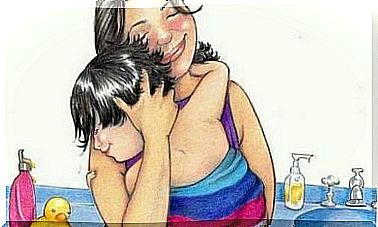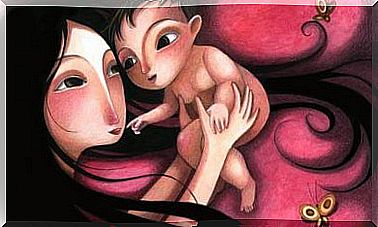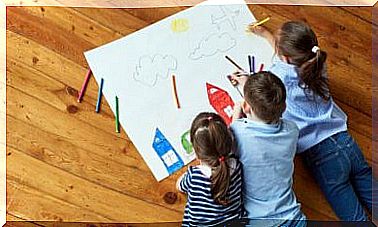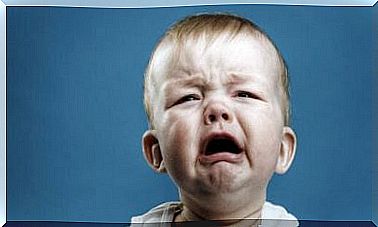Emotional Wounds In Childhood

Often times, childhood emotional wounds are dragged off into adulthood and it feels like we just got them. Therefore, it is very important to help our children cope with their emotional world and overcome emotional wounds. Every parent should remember that this is teamwork.
Parents shouldn’t just be a support throughout their children’s human development. You must also know how to raise children lovingly. And they should be aware that in this process they also have to relearn and re-evaluate a lot .
In other words, when it comes to moving through the emotional world, nobody has the final say. It’s about being ready to grow, embracing change with patience, and getting better together.
No person is born omniscient, let alone do we always know how to behave, react, feel and think. So you should be patient with your children and use your emotional intelligence to help them build a stable and healthy emotional world.
The 7 most common emotional wounds
The fear of rejection
Whether or not this fear is unfounded, it is based on a fear of social rejection. Among other things, it is the fear of losing the protection of the caregiver.
The child who is afraid of rejection and grows up with it becomes a person with low self-esteem and low self-love who changes his mind to accept the criteria of others.
Separation anxiety
The fear of being separated from parents and feeling lonely and abandoned in childhood forms an anxious, shy adult who is always lacking in affection and who is therefore insecure and submissive.
humiliation
A child who is humiliated both within the family and on a social level. When family members or friends belittle the child’s characteristics and make fun of, criticize and disapprove of them, they form a person who is shy and suffers but who is also tyrannical and inconsiderate.
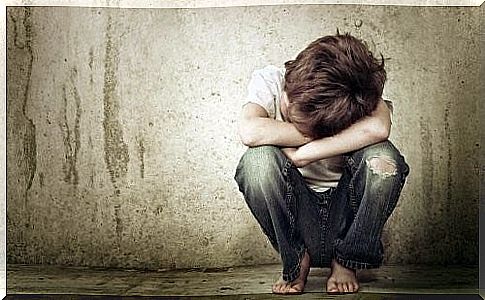
injustice
Unfair demands or reprimands that do not relate to their mistakes make children insecure and suspicious of anything and everything. In adulthood, this child can be negative and pessimistic and criticize others in an exaggerated manner.
Treason
When adults fail to keep their promises and the children’s expectations are not met, the child in question can become suspicious and unsociable.
In addition to the previous ones, there are two other emotional wounds that are also common, and I’m sure you’ll agree that these are perhaps the worst.
The lack of affection
This is one of the most painful emotional wounds. Those who are deprived of affection in childhood are conditioned to be unhappy. It is well known that affection is as necessary as food, hygiene, or curing disease. The brain, like the rest of the body, should be stimulated and supplied.
When children are not given affection, they are more prone to illnesses of all kinds, their physical development is delayed, they have behavioral problems, they suffer from stress, and they have difficulty communicating.
The lack of affection in childhood is one of the emotional wounds that is dragged off into adulthood. Cold, insensitive adults develop with little empathy and with difficulty in loving.

The emotional neglect
The emotional neglect of children is another emotional sore that is dragged on into adulthood as if it were a genetic disease. Men and women who have been deprived of their parents’ proximity as children feel empty and unnoticed.
Emotional neglect arises when parents, either do not have time to be with their children, or feel no affection for them, are physically and emotionally absent.
This emotional wound is viewed as a form of child abuse. Like lack of affection, once the person has grown up with it, it is complicated and very difficult to cure. Not infrequently it leads to depression and chronic sadness.
How do I avoid causing emotional wounds to my child?
In order not to inflict emotional wounds on your child, we recommend:
- Devote more time to his upbringing. By giving him as many hours as possible and not delegating his education to third parties
- Talk about the topics that interest them, discuss their points of view, and resolve their doubts
- Never compare it to anyone else. For example, if you want your child to act like others and get better grades on tests, encourage them to do research and study
- Talk to him about his fears and don’t belittle them
- Reward and praise them, highlight their qualities, and acknowledge their accomplishments so that you can improve their self-esteem
- Take your time and always ask for professional help to discuss topics such as the death of relatives, the divorce of the parents, their shyness, the truth of their origin (adoption) with them.
These are some general tips. The task of not inflicting emotional wounds on children, however, rests in the hands of each individual family and their actions.
